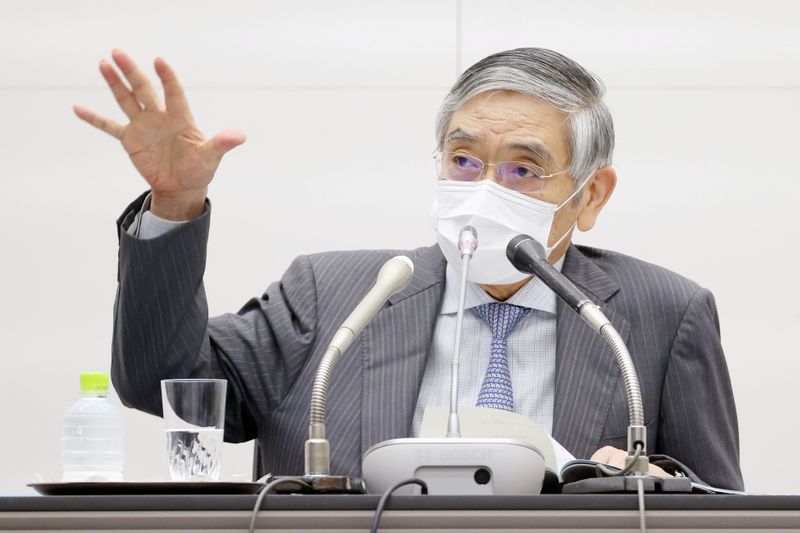By Leika Kihara
TOKYO (Reuters) - Bank of Japan Governor Haruhiko Kuroda said on Tuesday it was important to keep long-term interest rates "stably low" as the economy is still suffering from the impact of the COVID-19 pandemic.
He also told parliament the BOJ was buying government bonds across all maturities in a "balanced" manner, brushing aside some views that it was intentionally shortening the average duration of its bond holdings.
"Excessive falls in super-long interest rates would affect returns for insurers and pension funds. On the other hand, it's important to keep the entire yield curve stably low as the pandemic weighs on the economy," Kuroda said.
Under a policy dubbed yield curve control, the BOJ sets a -0.1% target for short-term rates and a 0% cap for 10-year bond yields as part of efforts to fire up growth and inflation.
Kuroda's remarks come ahead of the BOJ's two-day rate review on Friday, where the central bank will unveil measures to make its policy framework more sustainable as the pandemic prolongs a battle to achieve its elusive 2% inflation target.
Kuroda conceded that Japan's inflation expectations remain stubbornly low in contrast to that of the United States, which he said had "heightened quickly and quite a bit".
But he stressed Japan's real borrowing costs remain low thanks in part to the BOJ's aggressive monetary easing.
The fact that U.S., European and Japanese central banks are guiding policy with the common goal of achieving 2% inflation have kept exchange-rate moves stable, Kuroda said.
"In the past, the yen almost always rose in times of market turbulence due to its status as a safe-haven currency," Kuroda said. "That's not the case anymore, which is favourable for us."
The BOJ has a history of ramping up stimulus to combat an unwelcome yen spike that hurts Japan's export-reliant economy.
Fears of triggering a yen rise and drawing fire from politicians have at times discouraged the BOJ from dialing back stimulus, even when the economy was in good shape.

The dollar stood at 109.17 yen on Tuesday, staying near a nine-month high hit on Monday and well above the 100 mark seen by market players as the BOJ's line in the sand.